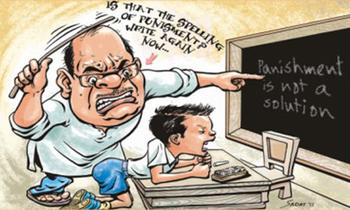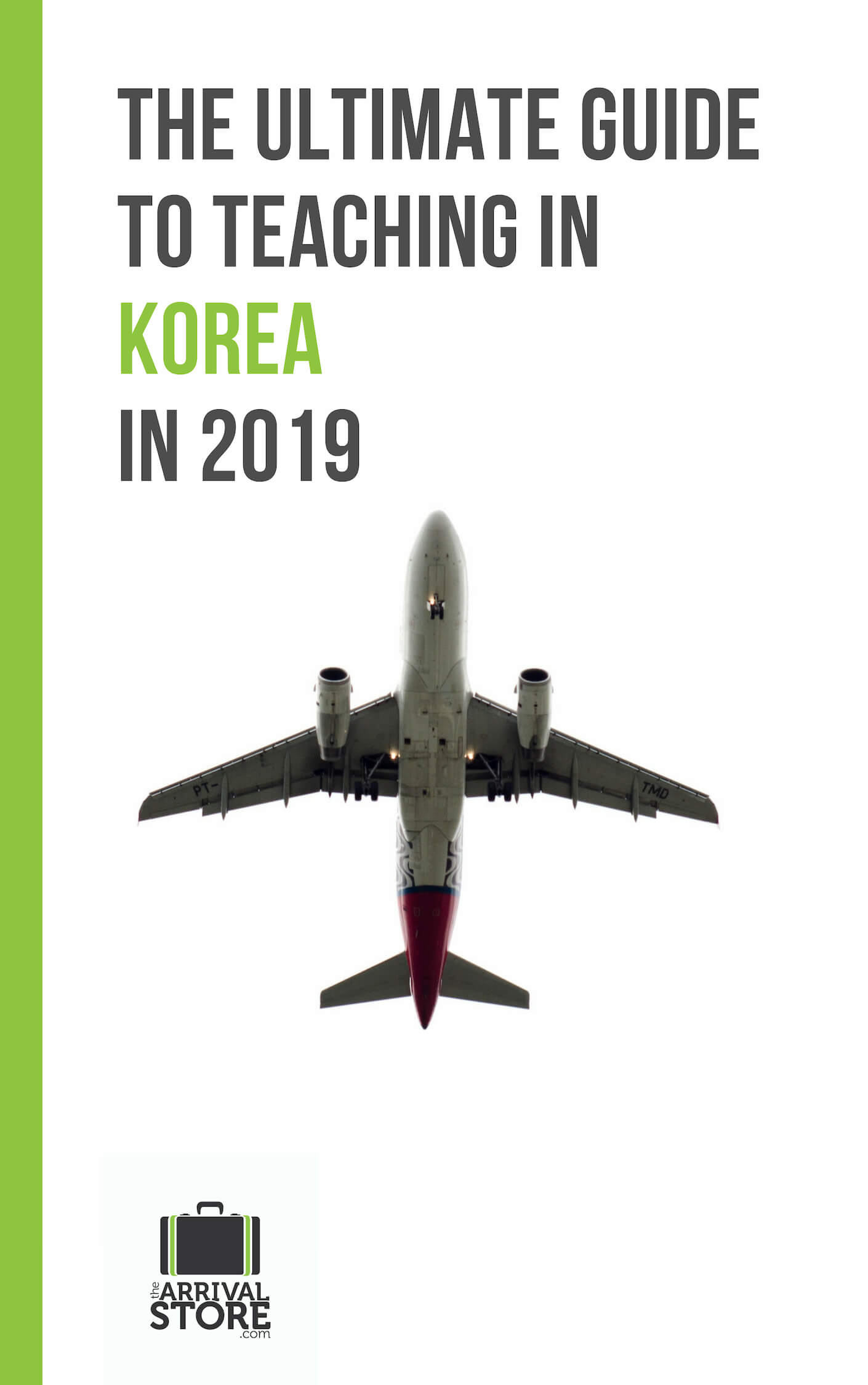4 Things You Need to Know About Teaching English in Korea
Teaching English in Korea is often seen as an easy job, but in recent years the industry has become more professional and employers more demanding; read on to learn about the culture of English education in Korea, and how it will affect you.

Sarah is a Portland, Oregon native who crossed the Pacific for the opportunity to live and work in Seoul, South Korea. Through trial-and-error she has managed to overcome mistakes and misunderstandings, recreate all the comforts of home, and find countless things to love about her new home abroad.
Many teachers come to Korea ready to teach English; they know their methodologies, have plenty of fresh classroom ideas, and are eager to meet the challenge of teaching in a new country. Often, however, those same teachers are completely unprepared for the way Korean culture – especially with regards to education – will impact their teaching and classrooms.
Read on to learn about four ways Korean culture will affect your job, and avoid the mistakes those teachers made.
1. Education Fever
Korean society places huge emphasis on the importance of education. Every year, for example, many businesses and most government offices, on the day of the national entrance exam for university (kind of like the Korean SATs or A Levels), open late specifically so as to avoid high school students getting stuck in traffic on the way to the test site. On the same day, airplanes landing at Korean airports are redirected so they don’t fly over schools and distract students taking the test!
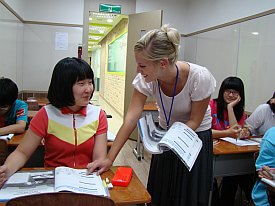
Education is serious business in Korea
More generally, many Korean children start attending private institutes or academies at a very young age. This can (and often does) create a fiercely competitive atmosphere among students, adding to the already considerable pressure from parents, teachers, and elders for them to excel academically.
What does this mean for your classroom?
Some parents place more emphasis on a child’s private academy (hagwon, 학원) studies than their public school ones. Public school teachers may encounter students sleeping in class because they were at their private school privately until 11pm, and they have been led by their parents to believe their public school classes don’t matter. Take it in stride and look for innovative ways to engage these students into being awake and active.
Another issue you may face is the amount of influence that parents hold. In Korea, parents’ voices carry far more weight than in your home country. If a parent is displeased with something at school, he or she will be sure to make their feelings known, and in no uncertain terms. It’s not unheard of for parents to come to blows with school principals if they feel their child is being mistreated.
Those teaching in private schools will find themselves more vulnerable to these influences, as hagwons are run as businesses: They rely on parents enrolling their children for the school to survive. Any semi-decent school shields their teachers from the brunt of this, but remember to give your principal or director the benefit of the doubt if they start making unusual requests (asking an Englishman to speak with an American accent, for instance): They’re probably under a lot of financial pressure from parents.
2. You, the Edutainer
You may consider yourself an educator. In fact, I hope you do. But you need to simultaneously hold that role and another: entertainer. Hence the label of edutainer. You have curriculum goals, lessons to scaffold, and material to cover, but you also are supposed to be the funny, exciting foreign teacher. Emphasis (in the public schools especially) is placed on student enjoyment, and this is even more true at the elementary school level. If the students complain about boring classes, the parents will speak up.
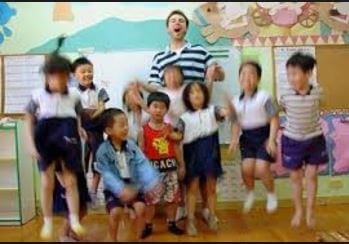
“The Edutainer” – courtesy of www.gooverseas.com
Bear in mind that it is not uncommon for a Korean elementary school student, in one day, to spend six hours at public school and then another six hours at academies studying things like math, English, Korean, and science. Their struggle against boredom is a real one.
What does this mean for your classroom?
By definition, many of the foreign teachers hired to work in Korea schools and institutes are there as conversation and speaking instructors rather than full-blown teachers. You speak fluent, beautiful English, and that is the skill most important for your position. Your job is not necessarily to teach them flawless English but to get them speaking, thinking, and playing in English.
You should make it your mission to devise interactive strategies to make English come alive for the students. This will include playing games, singing songs, dancing like a fool, creating role plays, and challenging their imaginations. Keep in mind that students will often struggle with activities without strict limits or highly creative tasks, so be prepared to help them along with encouragement and plentiful examples.
Don’t be surprised if the students regard English time as “happy fun recess time.” Instead, feed off whatever energy they offer you that day and always have a backup plan in case an activity or lesson starts to go south.
3. When East Meets West
Traditional East Asian culture differs considerably from what one might label Western culture. Without making value judgments about either, it still goes without saying that there will be challenges to overcome, especially if there are two teachers in the classroom with different ideas about how planning, lessons, rewards, and punishments should be handled.
Rules of physical contact are different. Until 2010, corporal punishment was legal in public schools. In urban, more-modern environments (such as Seoul, Busan, Daegu, etc.) corporal punishment has been removed from acceptable teacher behavior, but it still occurs with some frequency in middle and high schools. This becomes even more true as you venture further into rural Korea. On a more positive note, people coming from litigious societies like the US will be surprised to find it is okay to ruffle a student’s hair or indulge in a hug when they come running down the hall to greet you. Korean culture has a much more communal approach to raising children, and so teachers are given more leeway to engage with students than you may be used to.
Another challenge many foreign teachers face in Korea is dealing with the strictly hierarchical structures that permeate every aspect of life in Korea. Individuals accustomed to being able to question authority or submit ideas about how something should be done are often surprised to encounter the strict way Korean workplace culture operates. In a public school there may be more than seven layers of hierarchy, and so learning to navigate this cultural minefield is essential. In general, it is best to err on the side of caution and treat everyone with respect until you are more comfortable around them.
What does this mean for your classroom?
As should be obvious, corporal punishment is not expected of you and you should not engage in it. However, don’t be afraid to be a little playful with your students, especially if they seem receptive to that kind of contact. A joking bop on the head with a sheet of paper or a sneaky cheek pat can create a sense of camaraderie as well as send a subtle message that you are able to relax even though you are in charge. You should be careful at first: Observe how your coworkers interact with the students and what kind of behaviors the students display toward you. Within reason, model your own actions on what you see in your work environment.
You are not going to change Korea while teaching English, so it will behoove you to learn and respect the hierarchy and traditions at your particular school. You will likely hear people bemoaning how the hierarchical structure lowers innovation or holds back timely progress; while these arguments may hold merit, it does not change the fact that you need to operate within this particular cultural context. Find out early on how you should ask questions, raise complaints, and show that you are working. Then, abide by the rules laid out for you to avoid unnecessary conflict.
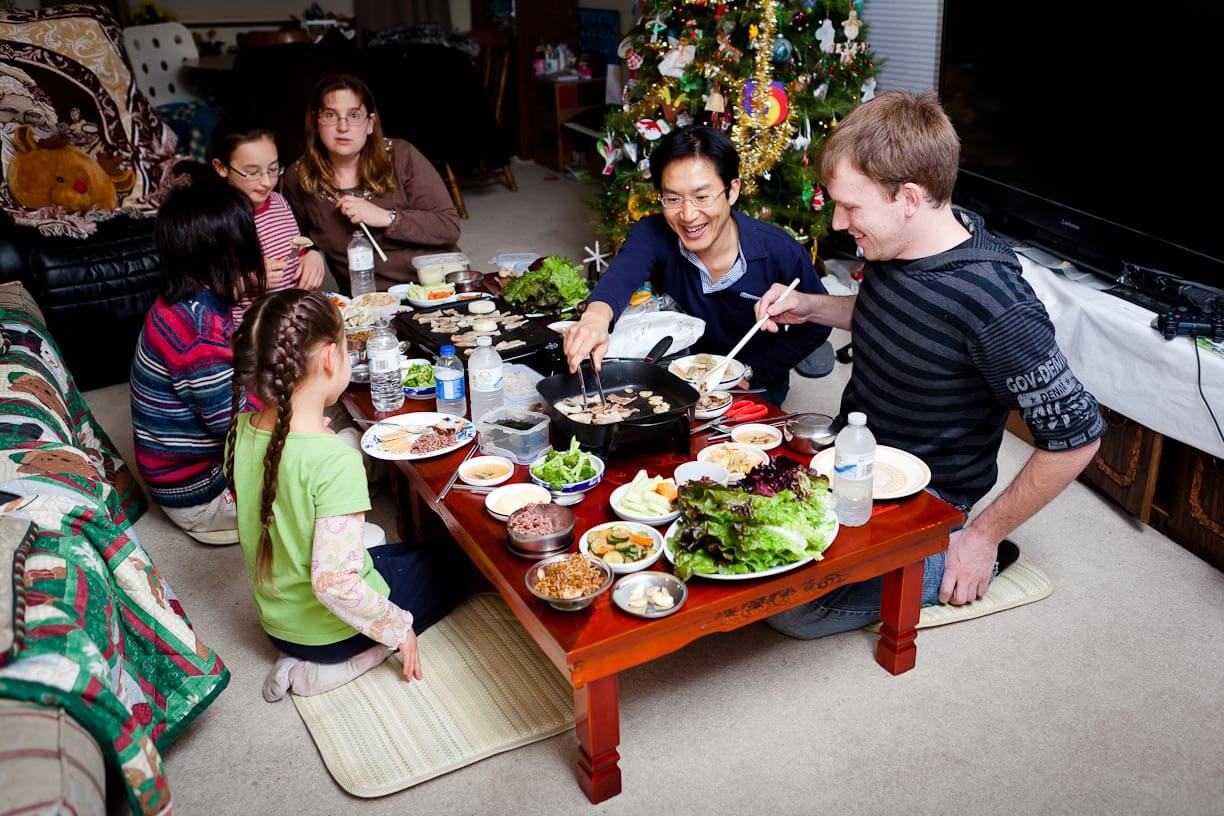
Joining your coworkers in staff dinners – and being sensitive to the many traditions revolving around sharing food together – is a great way to demonstrate your respect for Korean culture.
4. Global Awareness
South Korea, despite its rock-star economic rise and globe-spanning corporations, is still a fairly closed-off country in terms of global participation. This means that you may (very rarely) encounter casual racism, astonishing lack of knowledge about another country or race, or surprised faces when they see you in their neighborhood. This will be more true in rural areas, fading almost to non-existent in the global metropolises of Seoul and Busan.
Understand that these attitudes almost never come from a place of negativity or hatred; but rather are the result of a lack of exposure. Koreans only began traveling abroad for tourism in the late 1990s. Bringing foreign teachers into Korea, while largely about teaching English, is also a way to expose Korean students to the outside world by bringing it to their classrooms.
What does this mean for your classroom?
You are an ambassador for your own home country but, while teaching English, should also consider yourself somewhat of a cultural ambassador for the wider world. Bring examples of crazy, exciting, and funny things about myriad countries so that your students, through English, are able to begin to see that studying the language opens the world to them. This means emphasizing communication and highlighting opportunities that, while though they may be obvious to you, have never occurred to the children, teenagers, or young adults you teach.
Koreans tend to know a lot about Korea, so scaffold upon this knowledge by comparing the known (Korea) to the unknown (the rest of the world). Present to them different possibilities, but do not make value judgments for them. Your job is rather to open their minds (while having fun and using English)!
Are you moving to Korea and have questions? Currently teaching there are have some input? Leave your comment in the box below.
